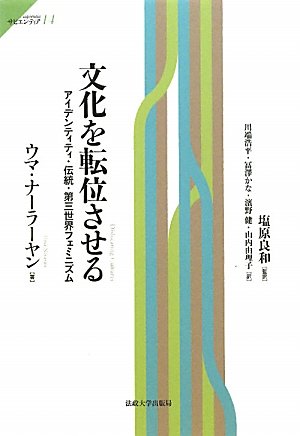11 0 0 0 OA もう一つのジモトを描き出す : 地方都市のホームレスの若者の事例から地元現象を考える
- 著者
- 川端 浩平 Kohei Kawabata
- 雑誌
- 関西学院大学先端社会研究所紀要 = Annual review of the institute for advanced social research (ISSN:18837042)
- 巻号頁・発行日
- no.4, pp.35-51, 2010-10-15
4 0 0 0 OA 越境する知識人と液状化する地域研究 : オーストラリアにおける日本研究の展開
- 著者
- 川端 浩平
- 出版者
- オーストラリア学会
- 雑誌
- オーストラリア研究 (ISSN:09198911)
- 巻号頁・発行日
- no.24, pp.72-88, 2011-03-20
Gesturing towards the possibility of an alternative area studies, this paper focuses on the genealogy of criticism of Nihonjinron, or theories of 'Japaneseness,' which emerged in the context of 'Australian-style Japanese Studies' in the late 1970s. Hundreds of texts fitting the Nihonjinron category were written by Japanese and foreign specialists on Japan, both in Japanese and English. Usually, such texts argued for and emphasized the uniqueness of Japanese society. In particular after the rise of the Japanese economy in the late 1970s, these texts often tried to explain the uniqueness of Japanese society as underlying its economic 'miracle' in nationalistic tones, while Japanese scholars who obtained their Ph.D.s overseas critiqued such trends. In this paper, I focus on the works of 'border-crossing intellectuals' such as Sugimoto Yoshio, Yoshino Kosaku, and Iwabuchi Koichi. Focusing upon such figures, I argue that their specific scholarly initiatives were centered around Australia, and were directed against the conventional Japanese Studies established in the United States within the context of post-war Japan-US relations. They were also critical of the idea of modernity which underlies Japanese Studies in the United States, and self-reflexive in their attempt to formulate alternative images of Japan. However, we can still observe exclusivist nationalism involving ethnocentric interpretations of Japanese culture in today's Japan. This cultural essentialism is derived from a certain understanding of area studies, and functions as a logic calling for the elimination of ethnic minorities today. Such exclusivist movements and ideologies are deployed by a fearful majority who can no longer recognize themselves as members of the Japanese middle class amid a situation of rapid globalization. This seems to indicate that we need alternative ways to understand localness. Based on the efforts of the border-crossing intellectuals mentioned above, I would like to seek an alternative mode of depicting 'areas' by deploying the idea of 'liquid area studies' advocated by Tessa Morris-Suzuki. This concept does not try to grasp areas and their cultures as something essential and solid, but rather focuses on how areas are constructed by the flows of global economic, political, and social power. From such a perspective, and in order to develop an alternative view of areas, this paper focuses on local minorities, which are often excluded in the process of constructing local identities.
1 0 0 0 OA もう一つのジモトを描き出す 地方都市のホームレスの若者の事例から地元現象を考える
- 著者
- 川端 浩平
- 出版者
- 学校法人 関西学院大学先端社会研究所
- 雑誌
- 関西学院大学先端社会研究所紀要 (ISSN:18837042)
- 巻号頁・発行日
- vol.4, pp.35-51, 2010 (Released:2020-03-31)
- 著者
- ウマ・ナーラーヤン著 川端浩平 [ほか] 訳
- 出版者
- 法政大学出版局
- 巻号頁・発行日
- 2010


